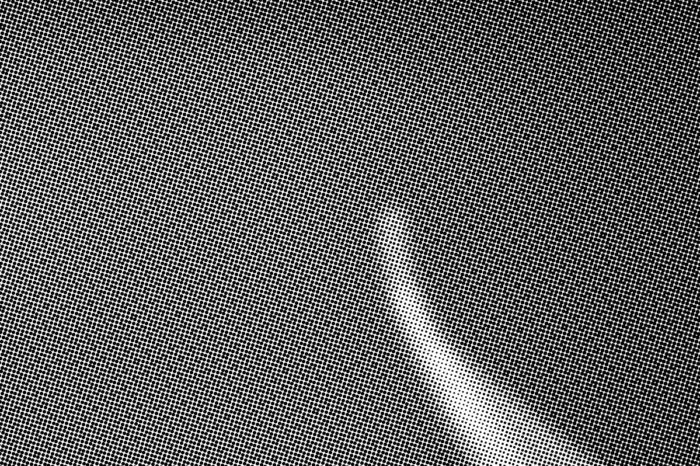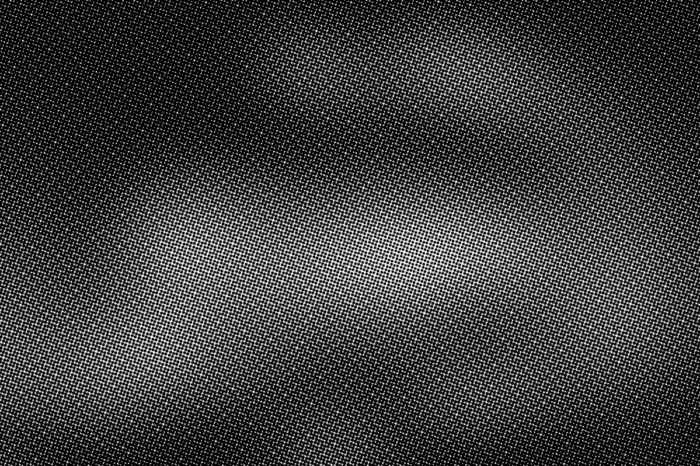A surprise
Begin part 1 (of 4)
Apologies in advance: these are a few random limbs of a longer project. Initially planned to focus on ghosts and ghost stories in fiction, but the project has strayed and I fear will continue to do so.
5. Block

Mental torpor. Staring at the page, drawing up another browser over it for a minute wherein nothing new has occurred on any of its many tabs, minimizing it, bringing back that stinging whiteness, bare save the bad UI design of Word and these very lines (as yet not adjoined to other text).
Music (both hunted for and stumbled upon) continually leaps from elsewhere onto my hard drive and into my ears. Useful whether to distract me from progress or its lack; possibly to drive me forward if only a few steps. I’ve it on shuffle… my preference is a handful of artists/albums/genres conducive to the kind of half-distracted process I employ, but occasionally some other thing surfaces, altogether less musical, less familiar. Robert Barry produced an album for an exhibition at the Van Abbemuseum. Long pauses filled with record crackle and general ambiance punctuated by a voice:
…………….
…………….
…………….
……………. Here it is
……………. Nonsense
……………. Inevitable
……………. Deny
……………. Sometimes
……………. Touching
……………. Endless
……………. Understand
……………. Too much
……………. Of course
……………. Please
……………. Only one
…………….
…………….
……………. 1
A loaded pause between each fragment. A peal of silence, a roar, an onslaught, a blitz; a crashing of silence, a calamitous silence.
What shakes me, what makes me hurt?
Intermezzo

To-day we have ceased to be consciously afraid of the unseen;–knowing that we ourselves are supernatural,–that even the physical man, with all his life of sense, is more ghostly than any ghost of old imagining: but some dim inheritance of the primitive fear still slumbers in our being, and wakens perhaps, like an echo, to the sound of that wail in the night.
—from “Ululation,” in In Ghostly Japan by Lafcadio Hearn
Imagine a dim, quiet street — a disheveled, long uninhabited mansion, lightless, arranged (curtains drawn, angles just-so) such that no exterior glow manages to slip in and find purchase upon its walls.
A shadow made of smaller shadows butted against one another puzzle-like. A congregation of shadow, a pod, a murder.
A black hole, standing with the door open (you’ve a key, it was unlocked or whatever) you are on the threshold staring in. A creaking as the building cools, materials contracting slightly and pulling against one another; perhaps a cat and/or mouse scuttle about in a distant chamber. Imagine turning around, facing the street, your back to the gaping maw of the thing. Step backwards into the void, carefully, pull the door closed before you, close your eyes.
A blinding darkness, strikingly dark, glaringly black, an obscenity of formlessness…
7. Without concession to humanity
It is as if a pain can be so acute that it folds in and then out of itself, like the matter of stars imploding into a point carrying all the mass of the original but somehow now a cypher, dark and radiant nevertheless. Ghosts are a kind of temporal slant rhyme, a near-repetition in denial of the normal progress of things.
Trauma at its most severe refuses to fade away, becomes chronic. Chronic — meaning something that reoccurs (versus something acute). It gained its vaguely disapproving/pejorative connotation with regards to disease and addiction in the seventeenth century, but at its heart it is simply something of time, from Latin chronicus and Greek kronikos “of time, concerning time.”
What doesn’t concern time, what isn’t time concerned with, what can be said to be achronic? Perhaps what is meant is there are some things (somethings?) which engage in a looping, a repetition and then there are those things that do not. This text, this evening, a roll of toilet paper etc. will come to a definite end; sometimes hiccups feel like they might never. 2 Time is cleaved in two — time as the medium through which entropy and disorder increase and time as something eternal. What is chronic is adjoined to the latter.
Hauntings are chronic occurrences. From Shirley Jackson’s The Haunting of Hill House:
Almost any house, caught unexpectedly or at an odd angle, can turn a deeply humorous look on a watching person; even a mischievous little chimney, or a dormer like a dimple, can catch up a beholder with a sense of fellowship; but a house arrogant and hating, never off guard, can only be evil. This house, which seemed somehow to have formed itself, flying together into its own powerful pattern under the hands of its builders, fitting itself into its own construction of lines and angles, reared its great head back against the sky without concession to humanity. It was a house without kindness, never meant to be lived in, not a fit place for people or for love or for hope. Exorcism cannot alter the countenance of a house; Hill House would stay as it was until it was destroyed. 3
Wishful thinking. Hauntings, like memory, refuse such programmatic destruction. Take a moment: recall something painful. Resolve: I’ll forget this now, I’ll destroy this pain, now. It will remain (perhaps with the memory of this futile effort in tow). We can no more cease breathing, stop our hearts cold.
Likewise, spectres are at their core the embodiment of the unruly nature of reminiscence. I think all the time of this fragment of Kafka:
‘But then he returned to his work as if nothing had happened.’ That is a saying which sounds familiar to us from an indefinite number of old tales, though in fact it perhaps occurs in none. 4
Consigned to the grave, ghostly individuals return to their story “as if nothing has happened”; nothing so severe as to disengage them from their pursuits. But they are not as they were — now nightmarish apparitions, or simply a nuisance to the living, any direct action is stymied. The tragedy which refuses spirits rest beneath the soil, the injustice they seek to right is exaggeratedly intractable in this state of neither-here-nor-there — frustratingly so. In the case of a haunting, having to witness loved (or loathed) ones move on without the ability to participate, watching the reoccupation of the site of their demise with such callous indifference to history by an unaware new tenant etc. must hurt; that they act out seems more than reasonable in this light. Cultural theorist Tiina Kirss describes how:
[…] paradoxically, the poetics of haunting provides a richly metaphoric repertoire of conceptual tools which, if used with caution and sensitivity, can enable more precision about those interstices and intervals where remembering happens. 5
Or I think quite appropriately they can unsettle misconstrued certainties, suggesting a separate path from the much lauded “acceptance.” Ghosts activate/occupy the disjuncture between worlds. They do not connect two shores like a bridge creating an easy pathway. Rather, visible in a spectrum between states, ideas, etc., they take up residence, squatters in their former home, homesteaders in the land of their birth. These pains and frustrations on both sides of the border between here and the hereafter offer us a chance to think about the land of the living, our choices, our empathy. Elsewhere in the same compilation of odd riddles and phrases Kafka notes: “There are questions which we could never get over if we were not delivered from them by the operation of nature.” 6 But this delivery seems insufficient, too easy a way out.
Let’s talk about death, loss, pain, jealousy, regret. Horror, real horror, and terror are maybe the rarest emotions we feel. So brief, as either their cause is quickly proved unfounded or the opposite and: snap, our necks are broken, sides split open, we are frozen, we drown. Horror can lead to any of the preceding feelings but somehow it maintains a distance from them, the difference between what presages and what comes to pass.
8. These times

Lazy déjà vu. It is as if I’ve sat here before.
I have. I frequent this place and doubtlessly have sat in essentially the same place as I am in now, with a beer to my right, salt and pepper shakers (moved out of the way of the laptop screen) standing like sentries to the left, a crumble of napkin present to daub ale from my beard, some old coasters rounding out my company upon the table. Probably wearing the same outfit, probably frequently escaping this screen to view another broadcasting the game. Mundanity encroaching herein when there was intimated something more profound. Excessively literary.
Though the stage remains the same, each time I follow the blocking and hit my mark before the footlights, the performance has grown a bit since last time. Words have been interspersed here and there, punctuation added or removed, parts rearranged. I’ve returned to my work similar to who I was when I made it, but much has happened in the intervening days; I am not the same, if only subtly so. It has been a tough duration certainly;
these times have left a mark.
Exacerbated by current events which bump into each other on their way to dishearten, death feels far closer than comfortable to the tip of my tongue on a regular basis. There was a time when a half-joking “who died recently” felt an appropriate way to come up with a punny name for a pub trivia team. Not now, not after this year’s ever-steady stream of tragedies both public and personal.
Having started out with a subject at an arm’s length from the every day and now finding myself midstream trying to think about death, trauma, etc. in a general sense when the specific and close-to-home is all around has become difficult, has stymied me a bit. But maybe this is fair, more than fair. Misfortune has never taken a break; it metes out its productions at a constant clip; it is only my attentiveness to the calamitous as amplified by its proximity to me that shifts.
These particular recent months stung. Is the particular acuity of that sting an indictment of a failure of empathy, death of the non-famous or non-familiar failing to register an emotional affect? Surely, but the bite is no less sharp.
But here I am again, ‘as if nothing has happened’, trying to speak. Language is a weak tool, like a prop rubber hammer to which more damage is done by the nail one is trying to embed. The more I type, the less certain I become. To what extent is this more than a gesture, something beyond just an accumulation of phrases?
In Tony Morrison’s Beloved a group of women attempt the perilous act of exorcism “the voices of women searched for the right combination, the key, the code, the sound that broke the back of words.” 7 I can hardly expect like Bane — having chosen not to eliminate but rather to disable Batman — to simply break language’s confidence, its spine. Some truth revealed in the aftermath. More reasonable goals: giving language a bit of an itch, making words yawn inconveniently. Revealing smaller truths in the form of hints. Or simply wallowing in grammar and its inverse, spinning my wheels.
9. A surprise
A surprise — after a night devoid of clouds which might’ve obscured or refracted a clear view of a significant full moon, upon walking out of my door this morning the world is enrobed in a thick, atypical fog.
It is hard to imagine experiencing this stuff and not thinking there’s an aether between all things. Water and nothing more, yes, but so fine a stuff, suspended among us, swirling at times and still as a cube of aerogel at others. In a sense, yes, a medium between all: atmosphere without which we’d perish. It is the whims of this substance — density, temperature — wherein vapor gains temporary dominion on our altitude in quantities enough to obscure sight.
10. Indices

Maybe sometimes when we forget we really do forget, in a strict sense — an idea or image slips irretrievably away, the pattern of neural activity through which it is recalled is overwritten or scrambled somehow. Although algorithms are in place as checks in balance for such a forgetting sometimes, due to consequences ranging from physical imperfections in the recording media to quantum effects, a bit will flip, changing from a one to a zero.
But just as often what is forgotten is merely misplaced, de-indexed. The matrix of sensations making up a past scene remain intact, but the connection between these and cognition, recall etc. is broken. The keys to a particular room are jumbled; the memory might return when unexpected, some background coincidence reconnecting the mislaid sequence to the whole. It may feel as if it returns for no reason whatsoever, suddenly an incident from grade school that you would have struggled to conjure upon request.
Equally inconvenient are those thoughts, memories, etc. that are over-indexed. Tied both to specific triggers and to esoteric, hard-to-pin-down ones, they foreground themselves despite effort, if not to forget, to not allow these shadows so imposing and constant a presence in one’s life.
When again, in this nook of the bar suitable for a dozen but occupied by only me, these sentences feel ever more alien. A Pixies album blares in my ears; between songs the bar banter and whatever the bartender has chosen as background music slips in and is quickly erased. “Cactus” comes on.
This same spot saw at least a dozen at a birthday party recently. Saw me seven years ago awkwardly surrounded by semi-strangers on a trivia night. I knew it was a thing; I took my seat early and pretended to be incidentally in place as the crowds arrived and jostled for seating to play. Eventually I’d attach myself to that group, most would disappear but some would become not only constant teammates weekly but close friends, a new love would be leveraged against their willingness to accept this ritual and their potential efficacy as part of the team.
You’ll have a collapse, but there’s nothing in it, and you’ll ask yourself…
11. Loops
Shuffle takes me back to the Robert Barry:
…………….
…………….
…………….
……………. Loved
……………. Beyond
……………. Forget
……………. Doubt
……………. Ourselves
……………. Every so often
……………. Describe
……………. Obvious
……………. Apart
……………. Absent
……………. Beautiful
……………. Quietly
……………. Realize
……………. Attention
……………. Stop
……………. Terrible
……………. Impossible
…………….
…………….
…………….
Here the words change, bring their own charge, but the silence feels eerily familiar, echoes. Like the final moments of the disintegrated loops of William Basinski, the long pauses allow the world to leak back in while simultaneously sharing the subtle atmosphere of the site at which it was recorded. And the media — for a brief stretch a sharp click strikes a little over every half-second until the feature on the record is past. I’m reminded — I put on a loop, ‘d|lp 6’.
While in college, William Basinski began playing with tape, inspired by both his musical upbringing and the experimental music program there. It was in school that he fell in love, moving to San Francisco for a bit then settling in Brooklyn. Musicians typically work on far more music than is ever released, and the same goes for recordings — a combination of demos, concert tapings, practice studio recordings, etc. piling up over time. These recorded matters are usually stored, and often a musician will go years before pulling out the old tapes or hard drives to listen to earlier works, if ever. It is not uncommon for an artist to produce more recorded material than could be reasonably listened to in several years.
Taking one’s music from one format to another, often from an analog physical media to a digital one, is a process that in most instances takes considerable time or at least an amount of time greater or equal to the amount of tape being archived. The process typically involves simply playing it all and taking the sound from the playback into a computer through an interface of some kind. It can be exceedingly tedious as one cues up each bit and tries to get the cleanest, nicest re-recording. And the archive of files or tapes is always at risk as having been corrupted during storage.
In September of 2001, Basinski embarked upon what so many before him had done and began to digitize a bunch of his earlier work recorded on tape in loops. To his initial dismay, the material was failing. As the tape passed over the tape head, bits of magnetic material began to crumble and fall off of the substrate, and with them, the sound recorded there.
The material was forgetting, erasing itself in real time, and Basinski kept recording the tape loops as they fell apart, adding reverb and some small sound. What begins as a full but brief piece of music starts to fade in places, gradually, irreversibly, till little remains but bursts of sound and the warm noise of raw tape.
“The first thing I did was get cigarettes,” says Basinski, recounting the day he watched the Twin Towers fall from atop his Brooklyn loft. 8 “My friend and I had just quit smoking,” he continues, “but here we were, searching for five-year-old cigarette butts. I thought, ‘The world’s ending. We’re going to have some real cigarettes.’ So I got them, went back home, and there was chaos on the TV. We turned that off and turned on the music.” Basinski had recently wrapped his Disintegration Loops series, so he cranked the volume, cracked open the windows and went up to his roof, where he noticed a friend across the way, who had a video camera out.
“It was the last hour of daylight,” says Basinski, “so I asked her to help me frame the camera and let the tape run out. It was just devastating.”
The works became inextricably linked to that event, with stills from the video made that day used as covers for the releases, parted out over time before being released as a box set. The Disintegration Loops are breathtaking, elegiac, and meditative. Death, memory, entropy, time… subjects which tend to be addressed in tedious, overindulgent manners find themselves evoked by a work which simply follows a process to its natural end without force. Here were ghosts visible on the breach between worlds.
From abstraction to matter and back again.
These albums, these reveries, these rememories…
Let’s get more specific.
End part 1
- From Robert Barry’s Otherwise published by the Van Abbermuseum in 1981.
- Hiccups do not have this effect on me — I’ve the strange ability to stop them as soon as I notice I have them. Indeed, as often someone else notices I have them, informs me, and — voila — they are gone. Least useful of potential superpowers.
- Jackson, Shirley. The Haunting of Hill House. New York: Viking Press, 1959. I’ll write more about this book and haunted houses in general, surely.
- From the collection of little fragments and allegories titled Reflections on Sin, Pain, Hope and the True Way in: Kafka, Franz. The great wall of China: stories and reflections. New York: Schocken Books, 1970.
- Kirss, T. (2013) Haunted Narratives. Toronto: University of Toronto Press.
- Ibid.
- Morrison, Toni. Beloved: a novel. New York: Knopf, 1987. To be discussed in depth later, maybe — it is a beautiful, dense, and painful text.
- Remaining quotes from Self-Titled Magazine, October 30, 2012, The Self-Titled Interview: William Basinski by Andrew Parks.